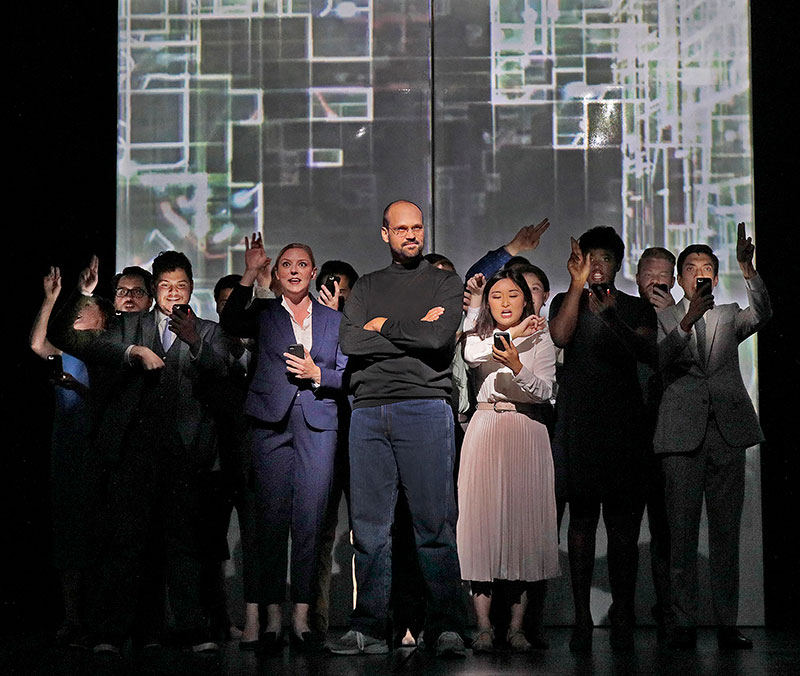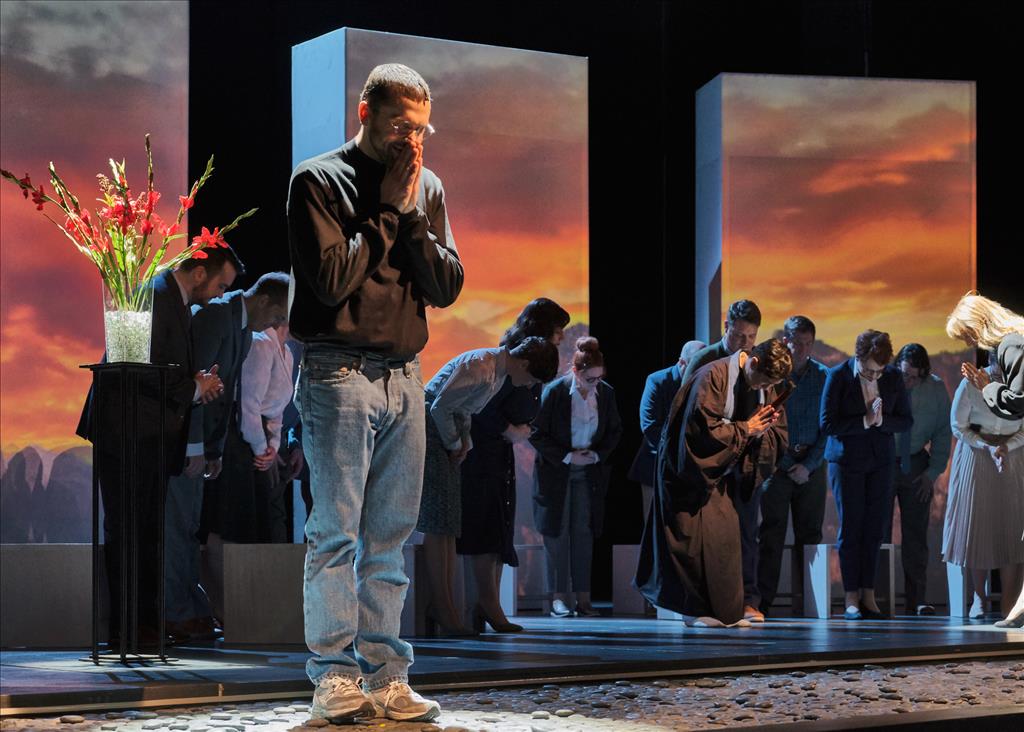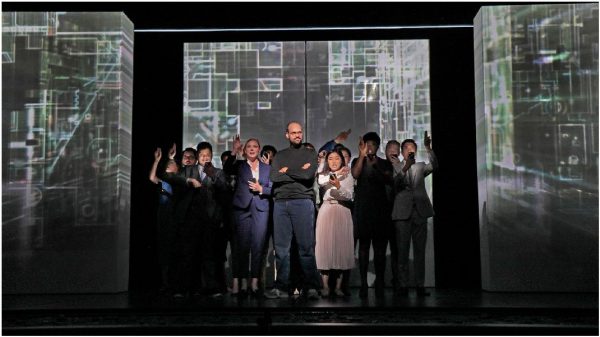

The tenor Garrett Sorenson is his sidekick, Woz. I adore his voice, but felt like this role kept him higher in his range than I like that made it easier to notice how fully he embodies the role as an actor. The (R)evolution of Steve Jobs has a small cast, and most of the weight falls on baritone John Moore, who cut his beautiful curls for the role of Steve Jobs. Opera has singers who don’t just hit the high notes, but also act.

The (R)evolution of Steve Jobs tells the familiar story of talented underdog who rises to the top, only to become the very thing he hated, finding redemption just in time for a too-early death. It feels the passion of a genius’ ambition, the obsession of a perfectionist striving for control it falls in and out of love, betrays friends and lovers, denies and finally accepts mortality. The (R)evolution of Steve Jobs is an opera. Opera is powerful emotion squeezed through familiar plots and draped over music. If you’re looking for a biography, get a book. Jacob Lucas photo c/o Seattle Opera What Opera Does It also does some new things that you don’t expect from opera, and it does those well, too. But I also mean that it does the things an opera is supposed to do, and it does them well. When I say The (R)evolution of Steve Jobs is a good opera, I mean good in the sense that, yes, I actually enjoyed it as theater rather than an interesting academic exercise. But The (R)evolution of Steve Jobs was a really good opera. What I did not expect was to actually like it. I expected it to spark many conversations. An opera about Steve Jobs? Then, when I read more about it, I became curious.

I was skeptical when I first saw Seattle Opera’s 2018/19 season.


 0 kommentar(er)
0 kommentar(er)
